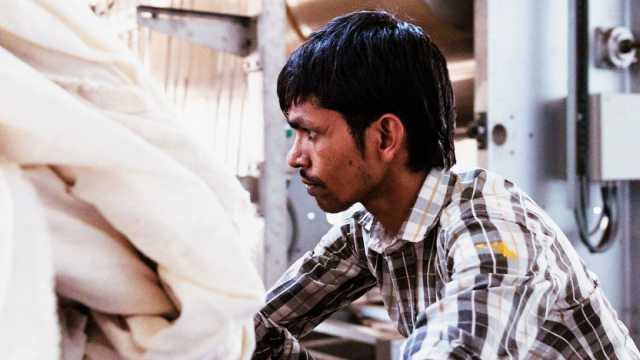Promoting diversity also through the supply chains: the Audi approach
Diverse supply chains are an opportunity to effect positive transformation in society; that's why Audi is focusing on diversity in the selection of its suppliers.
For Audi shaping sustainable mobility means extending efforts beyond the company boundaries, promoting diversity in communities and integrating diverse partners into the supply chain. These are companies that either create social added value with a specific commitment to society or the environment, or are owned by people from minorities.
This approach offers an enormous potential for change, as Audi operates worldwide with more than 14,000 suppliers from more than 60 countries. It is a network that can make a great contribution by integrating the value of diversity and having a real impact on the vulnerable, minority or marginalized communities served by these suppliers. In addition, diversity promotes and fosters innovation.
Yunus Social Business
Audi is working on its Supplier Diversity & Inclusion initiative together with Yunus Social Business, a leading Berlin-based social innovation company. The aim of the collaboration is to strengthen Audi's supply chain through a more conscious and diversity-based selection of suppliers. In this way, the Ingolstadt-based company can empower social and minority-owned businesses to integrate into the supply chain, resulting in the promotion of diversity through business operations, expanding their social value.
"The more diverse a company is, the more varied are the experiences, views and opinions taken into account in decision-making processes. And that leads to better and more resilient decisions," explains Monika Frech, Managing Director Corporate at Yunus Social Business, who then tells how with many companies collaboration has evolved to become a relevant business factor.

Suppliers and sustainability
Diversity and sustainability are key prerequisites for a successful future, which is why Audi implemented holistic diversity management back in 2017. This led to the Supplier Diversity & Inclusion initiative, through which equitable participation in the supply chain is promoted. "We have been working for years to ensure that sustainability is one of the decisive nomination criteria when selecting a supplier, alongside quality, technology, logistics and price. There is a minimum level of sustainability, mandatory for us, below which we do not accept the company as a partner," emphasizes Johanna Klewitz, Head of Supply Chain Sustainability at Audi AG. Having reliable supply chains and procedures is essential in the automotive industry, although working optimally with diverse suppliers requires changes to some business processes.

Working with partners
But what are the criteria for finding suitable partners? Where are they found, what distinguishes them, how much flexibility should be provided, and what processes should be activated? These are all questions that need to be answered and that in the initial phase of cooperation with social businesses require a great deal of commitment from Audi at all levels.
Of course, both sides have to adapt to the other. In this sense, the experience of Yunus Social Business has shown that it is a challenge for diverse suppliers to deal with both the bureaucracy of large companies and the quantities of materials or components involved. "Sometimes social businesses need a little help along the way, but then they can be reliable suppliers," explains Monika Frech, who then points out some advantages: "Companies that use social or minority suppliers get the supplies they need and at the same time expand their positive impact on society".
Training
In working with these suppliers, specific training is crucial, but also ensuring that the stakeholders involved make the purchases. Using diverse suppliers is a long-term effort, but at the same time it also offers long-term benefits. Yunus Social Business is an experienced partner and helps Audi look for new suppliers, change processes and train employees, because a lack of knowledge is often one of the biggest obstacles.
The Act4Impact program, for example, serves precisely to train and qualify employees through workshops, webinars and certification programs. In this regard, Audi has already activated a successful pilot project, whereby the social enterprise "Community Kitchen" was included within YSB's Unusual Partners program. The project involves the recovery of still edible food that would otherwise be thrown away and its use in the creation of creative meals.

Community Kitchen
The Community Kitchen program also offers environmental education for school classes and allows volunteers to experience what it is like to work in the kitchen. This innovative business model has been successful and was also used to cater the first Creators' Day organized by Audi, a format dedicated to youtubers and influencers. Audi is creating effective and sustainable business partnerships, using its global network to achieve positive change for as many people as possible.
Audi understands that purchasing activities affect the environment and society, so it is working on making this effect as positive as possible. Working with social enterprises generates added value not only for the supply chain, but also for the communities around them.
Source: AUDI AG
VGI | Responsible OU: VP | Creation date: article date | Class 9.1
